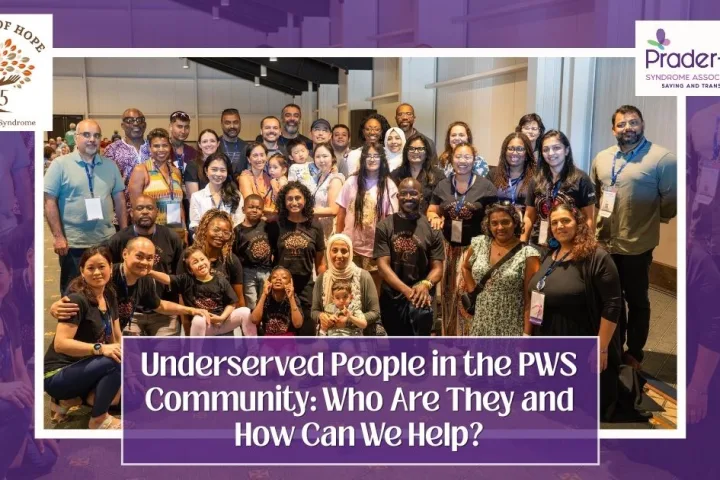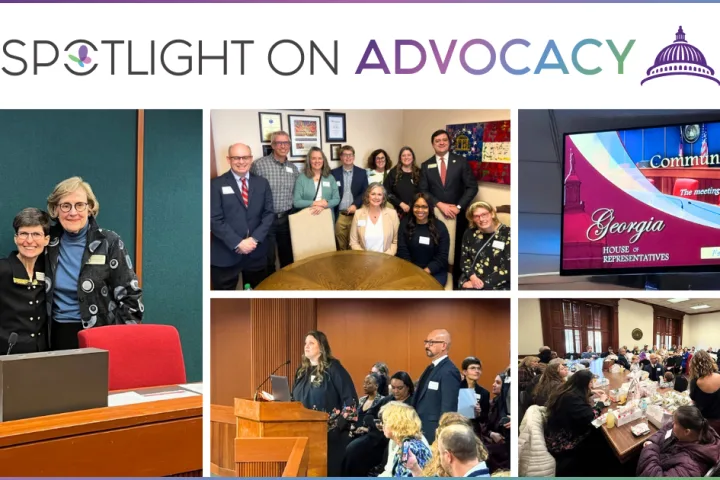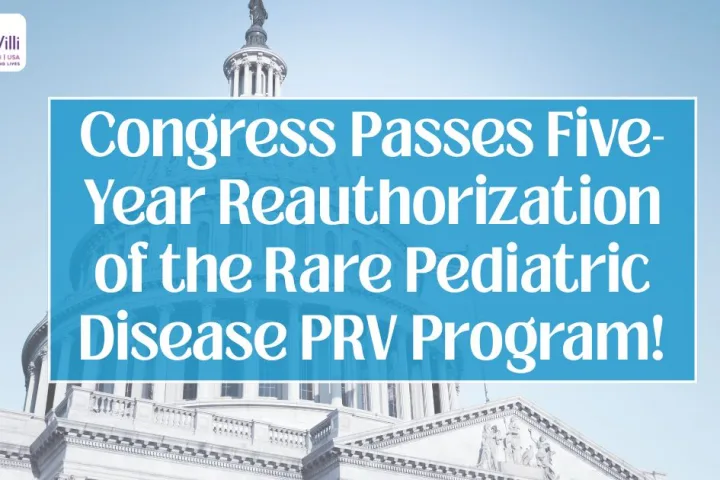Why do P&T Committees and DUR Boards Matter for PWS Treatments?
For families living with Prader-Willi syndrome, access to new therapies isn’t just about FDA approval. Once a drug is approved, there’s another critical step that determines whether patients can actually receive treatment: coverage decisions made by Pharmacy & Therapeutics (P&T) Committees and Drug Utilization Review (DUR) Boards.
These groups may sound like behind-the-scenes bureaucracies, but the decisions they make directly impact whether a treatment is available through Medicaid or private insurance. For our community, understanding their role is essential as we work to ensure coverage of the growing pipeline of therapies designed to treat the symptoms of PWS.
What Are P&T Committees?
Pharmacy & Therapeutics Committees are state- or health-plan-based panels of physicians, pharmacists, and sometimes patient representatives. Their job is to evaluate new drugs and decide whether to place them on the formulary—the official list of medications that insurance will cover.
When reviewing a therapy for PWS, P&T Committees consider:
· Clinical trial data showing safety and effectiveness.
· Cost-effectiveness compared to other treatments.
· Input from medical experts and patient advocates.
Their decision determines whether a new therapy is “preferred,” “restricted,” or sometimes excluded altogether.
What Are DUR Boards?
Drug Utilization Review Boards, often working alongside or after the P&T Committee, monitor how drugs are being prescribed and used once they’re on the market. They set policies such as prior authorization requirements (extra steps a doctor must take before prescribing) or limits on who can receive the treatment.
For families, this can mean the difference between smooth access or frustrating delays. DUR Boards help ensure safe, appropriate use of therapies, but their restrictions can sometimes create unnecessary barriers to care. That’s why patient voices in this process are so important.
Different States, Different Rules
One of the most challenging aspects of this process is that every state runs its P&T Committees and DUR Boards differently:
· Membership: Some states allow patient testimony, while others do not.
· Meeting Schedules: Some meet monthly, others quarterly or even less often.
· Decision Processes: Some states vote immediately on coverage, while others delay decisions for further review.
This means that access to the same FDA-approved therapy may look very different depending on where you live.
Timelines You Should Know
· Initial Review: After FDA approval, states typically review a new drug within 3–6 months, though some move faster or slower.
· Ongoing Reviews: Even after coverage is approved, DUR Boards revisit policies to monitor safety, costs, and usage patterns.
· Public Input: Many states allow patients and caregivers to provide comments—either in person, virtually, or through written testimony—before final decisions are made.
Key Takeaways for the PWS Community
1. Coverage is not automatic. FDA approval is only step one; states still need to decide whether Medicaid and insurers will pay for the therapy.
2. Your voice matters. Testimonies from families and advocates help committees understand the real-world impact of these treatments beyond the numbers.
3. Expect differences across states. A therapy might be covered in one state but heavily restricted in another.
4. Timelines vary. Stay informed about when your state’s committees meet so you can engage at the right time.
How You Can Help
PWSA | USA is actively participating in these processes by submitting written and oral testimony across the country. We encourage families to share their stories with us so we can bring the lived experience of PWS to the decision-makers shaping access.
Together, we can help ensure that when safe and effective therapies for PWS are developed, they don’t just exist on paper—they actually reach the people who need them most.
Writing Guide:
· My name is:
· I live in:
· My child living with PWS is ___ old and receives Medicaid in the state of (name your state).
· Thank the members of the committee for the work they do.
· How do the unmet needs of PWS affect your family?
· If your son/daughter IS taking VYKAT XR, explain how access to the drug has changed your lives?
· If your son/daughter IS NOT taking vykat XR, how will having access to an approved drug to treat hyperphagia in PWS change their lives and what their future looks like?
· What is your hope for the approval of drugs to treat hyperphagia in PWS?
Review:
If you’d like help drafting your story or want someone to review it with you, PWSA | USA is here to support you. Reach out to a fellow parent or contact us directly advocacy@pwsausa.org or (941) 312-0400.
Remember, the experts will cover the science; your testimony will touch the hearts of the decision-makers. Bring them to tears with the reality of our challenges and the promise of what could be. This is where the power lies.
Share this!





 Perry A. Zirkel has written more than 1,500 publications on various aspects of school law, with an emphasis on legal issues in special education. He writes a regular column for NAESP’s Principal magazine and NASP’s Communiqué newsletter, and he did so previously for Phi Delta Kappan and Teaching Exceptional Children.
Perry A. Zirkel has written more than 1,500 publications on various aspects of school law, with an emphasis on legal issues in special education. He writes a regular column for NAESP’s Principal magazine and NASP’s Communiqué newsletter, and he did so previously for Phi Delta Kappan and Teaching Exceptional Children. Jennifer Bolander has been serving as a Special Education Specialist for PWSA (USA) since October of 2015. She is a graduate of John Carroll University and lives in Ohio with her husband Brad and daughters Kate (17), and Sophia (13) who was born with PWS.
Jennifer Bolander has been serving as a Special Education Specialist for PWSA (USA) since October of 2015. She is a graduate of John Carroll University and lives in Ohio with her husband Brad and daughters Kate (17), and Sophia (13) who was born with PWS. Dr. Amy McTighe is the PWS Program Manager and Inpatient Teacher at the Center for Prader-Willi Syndrome at the Children’s Institute of Pittsburgh. She graduated from Duquesne University receiving her Bachelor’s and Master’s degree in Education with a focus on elementary education, special education, and language arts.
Dr. Amy McTighe is the PWS Program Manager and Inpatient Teacher at the Center for Prader-Willi Syndrome at the Children’s Institute of Pittsburgh. She graduated from Duquesne University receiving her Bachelor’s and Master’s degree in Education with a focus on elementary education, special education, and language arts. Evan has worked with the Prader-Willi Syndrome Association (USA) since 2007 primarily as a Crisis Intervention and Family Support Counselor. Evans works with parents and schools to foster strong collaborative relationships and appropriate educational environments for students with PWS.
Evan has worked with the Prader-Willi Syndrome Association (USA) since 2007 primarily as a Crisis Intervention and Family Support Counselor. Evans works with parents and schools to foster strong collaborative relationships and appropriate educational environments for students with PWS. Staci Zimmerman works for Prader-Willi Syndrome Association of Colorado as an Individualized Education Program (IEP) consultant. Staci collaborates with the PWS multi-disciplinary clinic at the Children’s Hospital in Denver supporting families and school districts around the United States with their child’s Individual Educational Plan.
Staci Zimmerman works for Prader-Willi Syndrome Association of Colorado as an Individualized Education Program (IEP) consultant. Staci collaborates with the PWS multi-disciplinary clinic at the Children’s Hospital in Denver supporting families and school districts around the United States with their child’s Individual Educational Plan. Founded in 2001, SDLC is a non-profit legal services organization dedicated to protecting and advancing the legal rights of people with disabilities throughout the South. It partners with the Southern Poverty Law Center, Protection and Advocacy (P&A) programs, Legal Services Corporations (LSC) and disability organizations on major, systemic disability rights issues involving the Individuals with Disabilities Education Act (IDEA), Americans with Disabilities Act (ADA), and the federal Medicaid Act. Recently in November 2014, Jim retired.
Founded in 2001, SDLC is a non-profit legal services organization dedicated to protecting and advancing the legal rights of people with disabilities throughout the South. It partners with the Southern Poverty Law Center, Protection and Advocacy (P&A) programs, Legal Services Corporations (LSC) and disability organizations on major, systemic disability rights issues involving the Individuals with Disabilities Education Act (IDEA), Americans with Disabilities Act (ADA), and the federal Medicaid Act. Recently in November 2014, Jim retired.